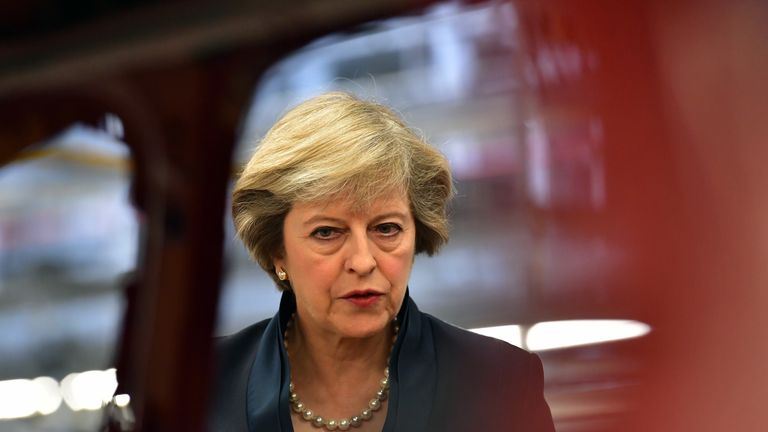New armed police to protect UK's infrastructure proposed
The plans would see three major forces combined into a specialist unit protecting infrastructure and responding to terror attacks.
Tuesday 22 November 2016 02:39, UK
Number 10 is planning to create a new specialist armed police unit to better protect Britain's critical infrastructure against terror attacks.聽
The plans, originated in the Home Office, will see different forces brought under one central command to establish a 4,000-strong armed unit protecting the UK's nuclear power stations, critical road points, ports and airports.
The force will also double up as a rapid deployment unit in the event that the UK becomes victim to the kind of terror attacks endured by France and Belgium in recent months.
The new unit would combine three main forces - the Civil Nuclear Constabulary, the British Transport Police and the Ministry of Defence Police - to form the new Armed Infrastructure Constabulary force.
Theresa May identified the need for a central unit when Home Secretary and one senior government figure told Sky News the plans were progressing and were now being looked at by the Cabinet Office.
However, another government figure stressed that the changes were more about "governance" of the different forces rather than a huge overhaul, adding that "no decisions had been made".
The Prime Minister is expected to take a final decision in the New Year.
The Highways England Traffic Officer Service and the roads and airport policing of the Home Office police forces' strategic road network could also be folded into the new unit - although no decisions have yet been made about the final structure.
The review was launched a year ago as part of the Government's Strategic Defence and Security Review.
The Home Office has described the infrastructure policing project as having "the potential to significantly change the current landscape of policing: increasing the effectiveness of our infrastructure policing while driving out inefficiencies".
It comes after Chancellor Philip Hammond announced a new cybersecurity strategy last month, warning that hostile "foreign actors" were developing techniques that threatened the country's electrical grid and airports.
The Cameron government assigned £1.9bn in the five years to 2021 to invest in cybersecurity in last year's Defence and Security Review - a sum that the May administration is sticking with.
The announcement came after MI5 Director General Andrew Parker warned of increasing Russian aggression - in particular cyberattacks. The claims have been dismissed as baseless by the Kremlin.
The proposals for the new national armed police unit is separate to plans laid down by David Cameron following the Paris terror attack to protect the public from terrorism.
The then prime minister announced plans for 1,500 extra firearms officers, with many to be deployed in rapid-reaction teams, which will be on patrol and ready to react around the clock.
The Civil Nuclear Constabulary consists of about 1,200 officers who patrol 11 nuclear sites and nuclear materials in transit.
The British Transport Police has about 4,000 staff, while the Ministry of Defence Police has approximately 2,700 officers.





